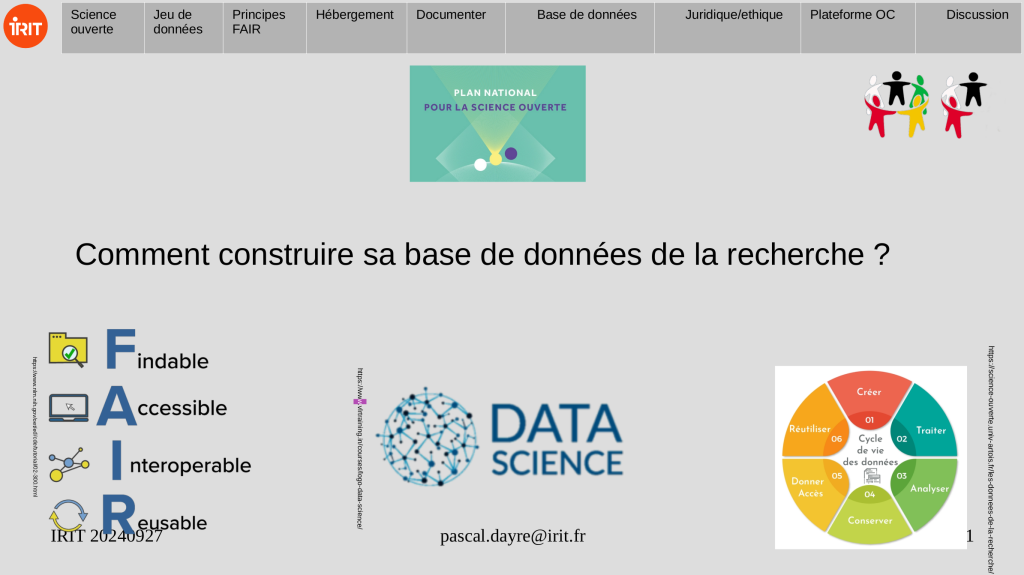
📅 Fri. 27 September 2024
During this presentation Pascal DAYRE introduced the team to F.A.I.R. principles, answering questions raised during Șerban OPRIȘESCU presentation:
- Who can host datasets, under what conditions, and with what services?
Data hosting can be handled by trusted platforms like Data Terra and its Pole Theia, which specifically focuses on surface observation and environmental resource management. The Pole Theia platform in Toulouse offers tools like algorithms and satellite products for managing agriculture, biodiversity, water resources, and land use. Datasets related to Earth observation and agriculture can be stored on these platforms, which support large-scale satellite data, model outputs, and observation data. - Where can datasets be stored?
Datasets can be stored in national or international repositories that comply with FAIR principles (Findable, Accessible, Interoperable, Reusable). These repositories often provide long-term data storage and accessibility, with the possibility of assigning Digital Object Identifiers (DOIs) for better traceability and referencing. - How to document a dataset?
Dataset documentation requires detailed metadata creation following international standards like W3C DCAT (Data Catalog Vocabulary). This ensures that the dataset’s descriptive information is organized properly for searchability and accessibility. Cataloging with proper metadata helps with data discoverability and improves the dataset’s reusability. - Can datasets be hosted privately while adhering to FAIR principles?
Datasets can be hosted privately while still adhering to FAIR principles. Hosting them on private servers or restricted-access repositories is possible as long as the metadata is openly available and the data is accessible under clear conditions. FAIR principles are focused on making datasets interoperable and reusable, even if the datasets are not publicly available. Proper licensing and metadata ensure that even privately stored datasets maintain their FAIR compliance by making their existence and access conditions known. - Ethical and legal aspects
Ethically, datasets should be as open as possible but as closed as necessary, balancing openness with privacy concerns and intellectual property. From a legal standpoint, it is crucial to apply the correct licenses to both the metadata and datasets, which can use different licences.
